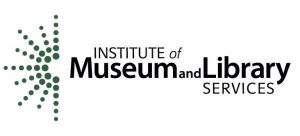
By: Genya O’Gara (Virtual Library of Virginia), Elizabeth Kelly (Loyola University New Orleans), Caroline Muglia (University of Southern California), Ayla Stein (University of Illinois at Urbana-Champaign), Santi Thompson (University of Houston), and Liz Woolcott (Utah State University)
The Reuse subgroup of DLF’s Assessment Interest Group is thrilled to announce we have received a 2017 IMLS National Leadership Grant for Libraries award (LG-73-17-0002-17) to research the needs and ideal functionality of a toolkit for assessing the reuse of digital library objects!
How objects are reused by digital library constituents is a complicated, perplexing question for many staff at cultural heritage organizations. Currently, traditional assessment analytics for digital libraries focus almost entirely on simple access statistics. These statistics, although appropriate for many more traditional library materials, do not provide a nuanced picture of how different user communities utilize or transform, unique library-hosted materials from digital collections. This lack of distinction, combined with a lack of standardization in the assessment approaches applied to these collections, impacts an institution in two ways: its ability to build strong infrastructures and collections that respond to user needs; and its leverage in showing value to stakeholders. These problems are compounded by deficient staffing and long-term funding models needed to support rapidly expanding digital collections.
The Reuse subgroup has been working to formulate a community response to these problems since the conclusion of the 2015 DLF Forum. Building on recommendations from Surveying the Landscape: Use and Usability Assessment of Digital Libraries, a white paper that outlines the current state of digital library usability, return on investment, and reuse literature, we focused on highlighted some the current gaps that prevent the assessment of digital library content reuse. The group, including Genya O’Gara (Virtual Library of Virginia), Elizabeth Kelly (Loyola University New Orleans), Caroline Muglia (University of Southern California), Ayla Stein (University of Illinois at Urbana-Champaign), Santi Thompson (University of Houston), and Liz Woolcott (Utah State University), determined that a toolkit designed to measure digital library object reuse would fill a critical gap. Such a toolkit could assemble tools, techniques, and use cases to assess the reuse of materials within digital libraries.
However, given the lack of standards, existing common practices, and agreed-upon metrics surrounding reuse, developing an assessment toolkit proved to be premature. We quickly realized the project would benefit by first identifying and addressing the needs for such a resource. Our attention then turned to developing a needs assessment to better understand the desired scope and functionality of such a toolkit.
To be as comprehensive as possible with this needs assessment, as well as to expand the scope of the assessment to the national stage and include institutions of all sizes and types, we submitted a National Forum Grant to the Institute for Museum and Library Services in early 2017. The toolkit we will plan would centrally locate important resources and scholarship, help in the development of standardization and best practices for digital libraries, archives, and collections moving forward, and support the full lifecycle of a reuse assessment project. We designed the project to engage digital librarians, archivists, curators, scholars, and administrators who have an investment in standardized, accessible assessment measures for digital library objects. This critical needs assessment will lay the groundwork for the provision of a future toolkit.
On Tuesday, April 18, we received confirmation from IMLS that our grant application, titled “Developing a Framework for Measuring Reuse of Digital Objects” will be funded as one of several exciting new projects!
Starting in July 2017, the Project Team will conduct a year-long formal needs assessment, which will include data collection, analysis, and dissemination. Data collection will occur through in-person and virtual focus group sessions as well as via pre- and post-surveys. Additionally, we will form an advisory group to provide critical feedback on methods used for data collection and analysis, and on the drafting of final recommendations. The team will also share our progress and results through regular posts to the project website (coming soon) and via future publications. Throughout the project, we will engage a diverse and knowledgeable community of practitioners to ensure that the defined needs of the assessment toolkit are collaboratively developed by the groups that will employ the final product.
The success of this needs assessment will rely on the same collaborative spirit and generous sharing of time and expertise that makes the DLF community such an amazing resource for cultural heritage organizations. We’re excited to engage the larger community in expanding our understanding of digital library reuse by inviting others to participate in the data collection activities cited above, to provide feedback during formal team presentations at professional conferences (and informal updates on the Project Team’s website — coming soon), and to integrate lessons learned from the needs assessment into their own assessment practices.
To learn more about the project, and the groups that support our team, see:
- IMLS Grant Abstract (Log Number: LG-73-17-0002-17), which will soon include a draft narrative of “Developing a Framework for Measuring Reuse of Digital Objects”
- DLF Assessment Interest Group Wiki (Reuse Team here)
- Developing a Framework for Measuring Reuse of Digital Objects Project Team website — coming soon.
We would like to thank the IMLS for its generous financial support, the staff of CLIR/DLF for their continued support and guidance in making this grant application (and funded award) possible, our colleagues in other DLF AIG Working Groups for their critical input and feedback on the design of our project, and our home institutions for giving us the opportunity to engage in this exciting work. We look forward to collaborating with you all over the next year to make sense of content reuse.
